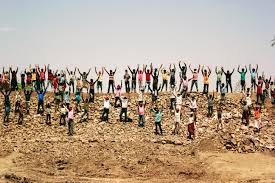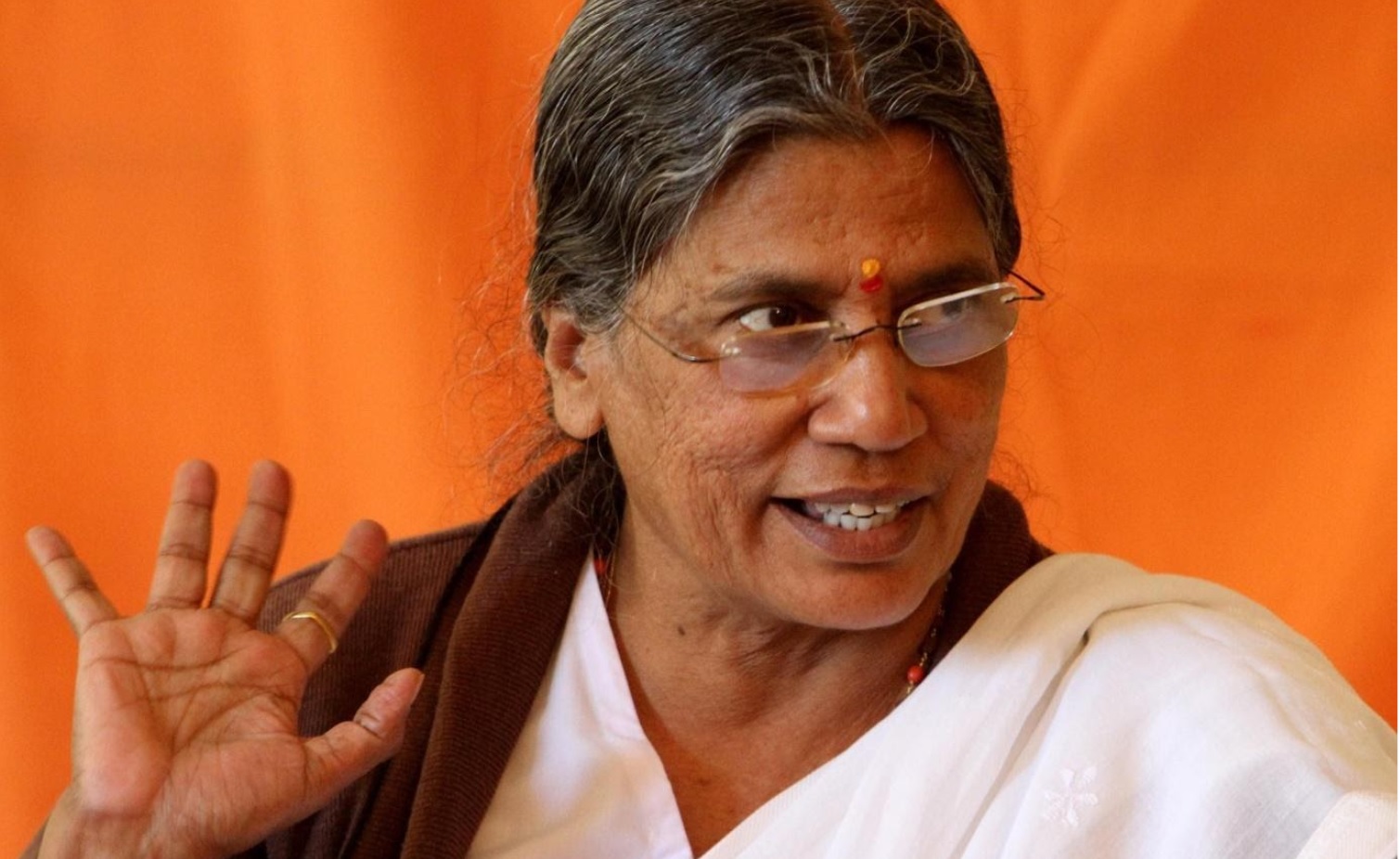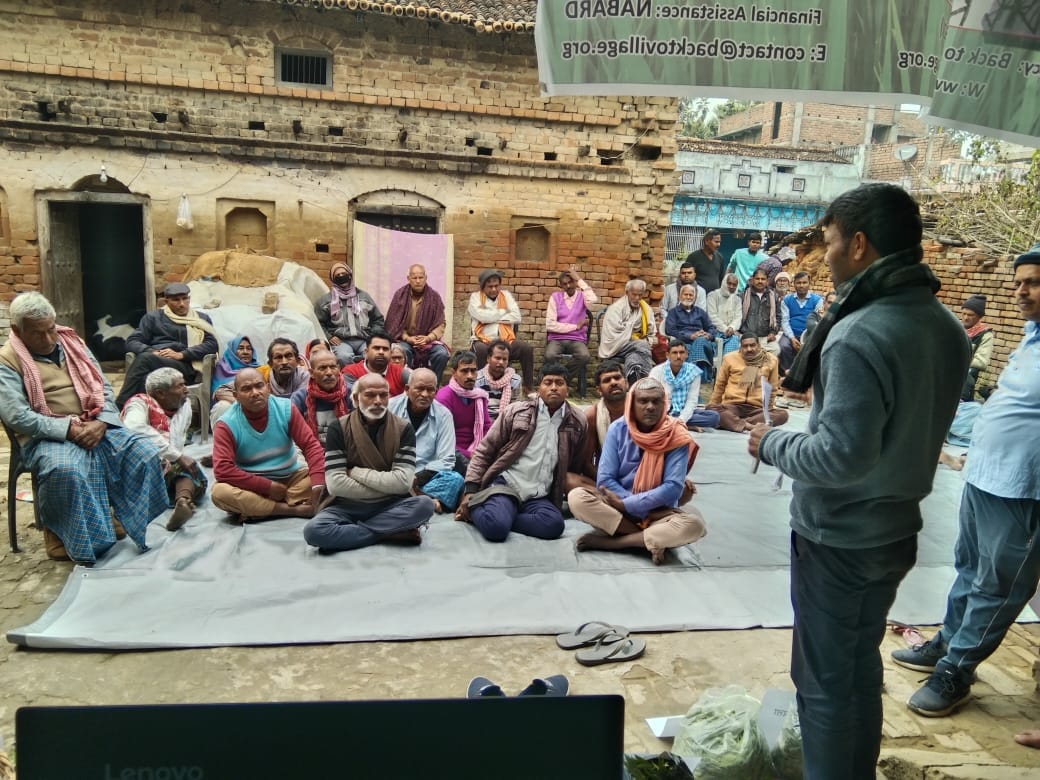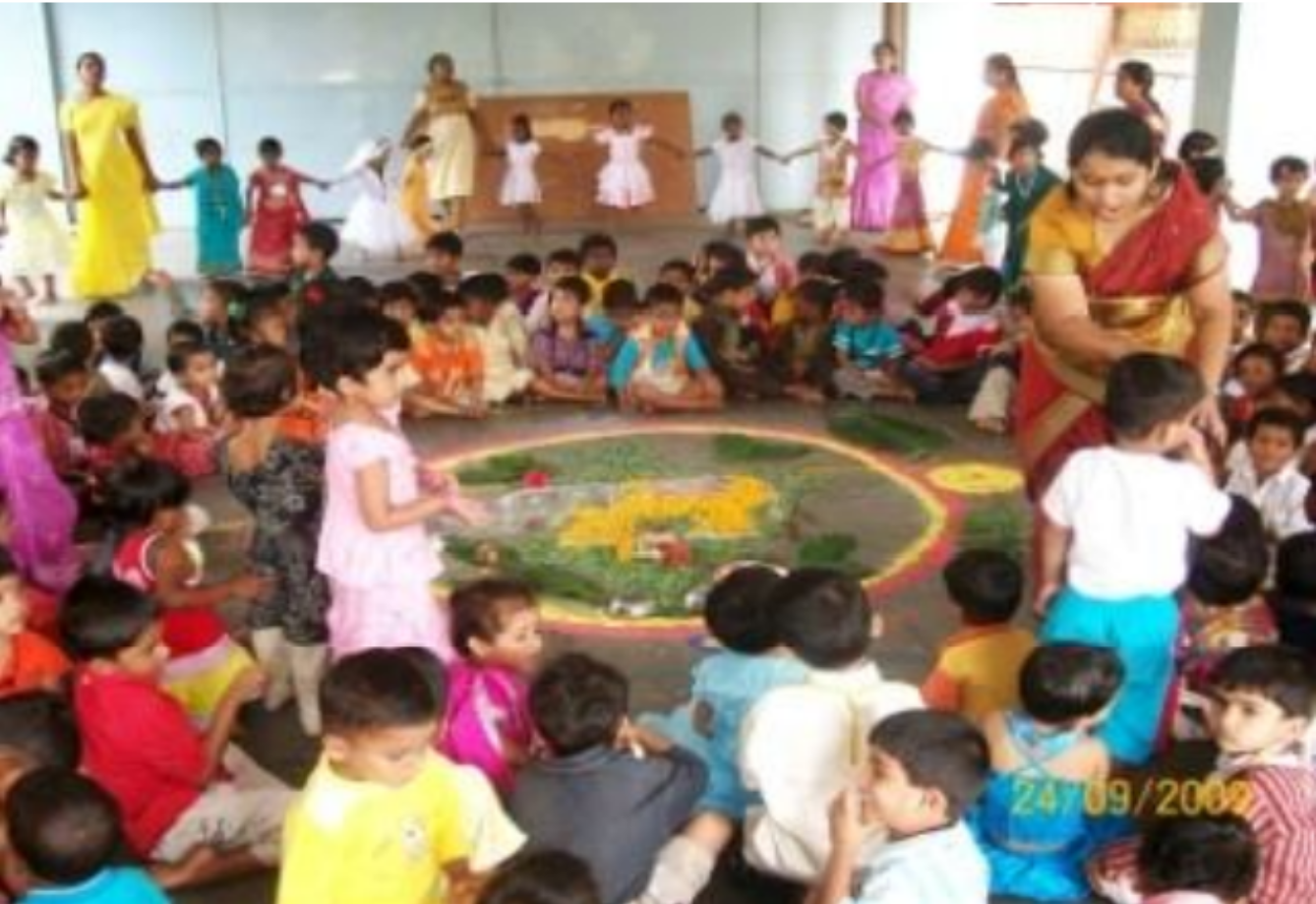In 2000, Suresh Poshettyhalli founded The Vahini Development Society, an NGO that strives to improve the lives of those from marginalized communities. What started as a small local operation, has now become a deeply impactful organization, touching the lives of over 40,000 individuals. How? Read on to find out!
M.P. Lakshminarayana Reddy was an ordinary farmer in Karnataka making an average farmer’s income when he met Suresh Poshettyhalli. Under the guidance of Suresh Poshettyhalli and his organization, The Vahini Development Society, Lakshminarayana was able to nearly double his yearly income. How did he do this?
During his meeting with the Vahini Development Society, Poshettyhalli made a compelling argument as to why Lakshminarayana should switch from the use of chemicals in farming to producing everything organically. Skeptical about the claim of benefits that Poshettyhalli was putting forth, and nervous to deviate from the way he’d been farming for many years, Lakshminarayana was hesitant but decided to take a leap of faith. From then on, Lakshminarayana introduced new techniques such as vermicompost (using worms to create compost) and Azolla (a natural fertilizer). He immediately noticed a big change in the quantity and quality of the crops being produced and saw his profits improve dramatically. From then on, he was a believer.
The Vahini Development Society, in collaboration with the Organic Village Project, has helped hundreds of farmers like Lakshminarayana switch to a method of farming that’s not only better for the environment but also better for their business.
In addition to focusing on spreading awareness on the benefits of organic farming, The Vahini Development Society also focuses on many socio-economic and environmental issues affecting a large variety of people in India. From organic farming to women’s empowerment, the Vahini Development Society touches the lives of thousands of impoverished and disadvantaged people.
Man who started the mission
Suresh Poshettyhalli is one of the founders of the Vahini Development Society and has been committed to its work for the past twenty years.
Growing up, Poshettyhalli lived in a joint family with 26 members. These members include his parents, siblings, grandparents, aunts, uncles, and more. Together, the family tended to 18 acres of farming land (roughly 24 football fields!). This was no easy task – Poshettyhalli had to get up early in the morning to finish his work before school and had to continue with this work after coming home from school, all while balancing his academics and social life. But the amount of time he spent on the field made him an expert when it came to understanding the struggles farmers go through. This enabled him to discuss them in a knowledgeable and relatable way with other farmers at the Vahini Development Society.
While growing up on the family farm, one of the most influential figures in his life was his father. Poshettyhalli’s father was dearly loved by the entire community due to all the social services and projects he was selflessly involved in. His father encouraged Poshettyhalli and his siblings to take part in these projects and taught them to always help their communities in whatever way they could. Seeing the impact of the projects in his local villages, Poshettyhalli was sure that this was what he wanted to commit his life to.
When he went to college, Poshettyhalli studied sociology, which helped him gain a more thorough understanding of how societies work and how he can impact his own. Using this knowledge, he started working with a small local non-governmental organization in 1992.
How did it all begin?
While working at the non-profit, Poshettyhalli conducted a social project that involved building a watershed for the local community. Upon completion of the project, he was pleasantly surprised at exactly how successful it was and how drastically it improved the lives of the villagers.
Poshettyhalli felt an overwhelming inspiration and desire to do something similar on his own. He decided to leave the non-profit and begin his own, called the Vahini Development Society. He envisioned a non-profit that focused on issues that he felt impacted a large portion of the local population and would have a domino effect and bring about a better life to future generations as well.
He created this organization with a group of other, like-minded people, each bringing with them a unique background and skills developed from working at various large corporations all around India. What united them all was the goal and drive in their mind to improve their community. Poshettyhalli brought them all together and formed what they initially thought would be a local community organization but became so much more, the Vahini Development Society.
Doing this type of work isn’t for the faint of heart, however. Poshettyhalli had to make multiple sacrifices to make sure that his organization was well established. He has forsaken the luxuries of comfortable living. He currently does not have a home in his name, nor does he have any financial assets, making him very vulnerable in any emergency situation. With these types of restrictions in his life, he has learned how to live without many needs. Poshettyhalli was not forced into this situation, but after seeing the impact of organization-work on the needy communities, he decided to leave all luxuries of life and devote his time and effort to causes he felt deserved attention.
No matter how noble an organization is, they must still have money to support their projects. Initially, The Vahini Development Society turned to the government for funding, which turned out to be an effective way to lay the foundation for the organization and fund some of their initial operational costs. The government was encouraging and supportive of the work that VDS was doing and has even recognized it with awards and so even so, the Vahini Development Society often acquires service projects directly from the government. This way, they are able to automatically secure some amount of immediate governmental funding and resources to ensure the projects are successful. In addition to receiving help from the government, VDS was also able to rally support from the local community itself. Although the community doesn’t always have monetary resources to contribute, they often make it a priority to at least contribute raw materials and manual labor to the projects.
The initiation of the Vahini Development Society was a tedious and hard task. It took a long time for Poshettyhalli and the others to overcome the various hurdles involved in building an organization from scratch, everything from finding funding, to building a trustworthy team, to trying to keep your neck above the long pile of paperwork. Looking back on that time, Poshettyhalli recognizes how challenging it was but recounts those memories with a smile because in the end, it was all worth it. In just 20 short years, the Vahini Development Society has helped hundreds of farmers switch to organic farming, encouraged women to become independent and start up their own businesses, and fought vigilantly to make sure every child in the remote areas they ventured into had access to a proper education. The work of the Vahini Development Society has revolutionized many villages in Karnataka and has positively impacted thousands of people along with it.
More Insight Into VDS
As mentioned, The Vahini Development Society focuses on many issues including women empowerment, rural education, soil & water conservation, health & nutrition, and organic farming. What differentiates VDS from other organizations is their focus on sustainability and implementing long-term solutions in an economical way. Instead of just throwing money at a problem, VDS thinks through ways they can work with the community and teach them to function in more empowering ways which will be socially and economically better for them in the long-term and well as environmentally-friendly.
In short, the Vahini Development Society aims to improve the overall standard of living in these communities. To achieve these goals, they have implemented multiple tactics to introduce changes in their communities and keep themselves motivated and on-task. The team micro-plans every single event, spending a lot of time in group meetings making sure that even the smallest detail is not overlooked. Regular group meetings where participation is encouraged ensures that the team stays engaged and focused on the task at hand, allowing them to achieve the desired end-goal for every initiative. Project specialists meet at least weekly to discuss their progress and trade ideas, share stories, and encourage each other to continue on in their work no matter what difficulties they’re facing. This collaborative and supportive environment, created under the leadership of Poshettyhalli and his team, is the secret sauce to their success. It is what keeps the cause organized, on track, and enables it to achieve a high success rate. As a result, VDS often outperforms many other NGOs in the area. Their success record, in turn, gives them an exemplary reputation and assures any new people they outreach to that this will be an organization that gets the job done.
These tactics are aligned with their vision, which is “To be the most trusted non-profit organization striving to work for marginalized and backward communities to reduce their poverty by empowering community-based organizations and sustainability.” With this vision in mind, they have established themselves as the ‘Model NGO’ by the Dept of Agriculture in Bellary & Chikkaballapur Districts of Karnataka State. This impressive feat has helped them gain recognition, in turn allowing them to build and scale quickly.
The Vahini Development Society has earned several other awards as well, and Poshettyhalli speaks about them with a lot of joy and pride. The Vahini Development Society has also been officially recognized under the GOLD category by FMSF and CPA Services in New Delhi.
Given their track record, it comes as no surprise that even with the current COVID-19 outbreak, VDS is continuing its work and adapting as required in order to meet the community’s changing needs. During the global pandemic, the Indian government enforced a nation-wide lockdown for 21 days starting from March 24th. Although this was a necessary step to prevent the spread of the coronavirus, it also caused a panic amongst those who couldn’t simply adapt to working from home. India has a large population of migrant workers who regularly travel between states to work on various laborious projects as needed. Many were unable to go back home because of the lockdown. For these people, Poshettyhalli and the Vahini Development Society created migrant shelter homes for the migrant workers and their families to live in all along the edge of the Karnataka border, where most of the migrant workers are situated. The Vahini Development Society would provide these shelter homes with basic accommodations such as food, clean water, clothes, and other basic necessities. They also cleaned the homes daily to take safety precautions for their inhabitants. Poshettyhalli and his co-workers continue to provide for around 80 migrant workers daily. In addition to this, Poshettyhallii and the Vahini Project have been supporting other individual families who are out of work and unable to collect any kind of salary. So far, they have donated around 3,400 items to needy people in the villages. Poshettyhalli is a COVID warrior, working day and night to make sure nobody goes hungry on his watch. Poshettyhalli has also started partnering with other NGOs to magnify the impact of VDS during this time. He has created eight blood donation camps through the Indian Red Cross Society and received an award from the district administration for this immense accomplishment.
In these ways, Poshettyhalli and his organization, the Vahini Development Society, have been helping thousands of villagers and positively impacting and inspiring others to follow in his footsteps and do the same. He hopes to grow the organization even more and start empowering those outside the state of Karnataka as well and he looks forward to tackling every challenge that comes along with it.
His Message to the Youth
Today’s youth are often looking for ways to make a real impact on society. But how can we go beyond just sharing a post about a cause on our Instagram feeds?
“The best way to help the community is to just get started and get involved,” says Poshettyhalli. No matter how big or small the project is, he pushes teenagers to concentrate on social services, to sacrifice time and effort, and to do anything to help the community because every minute you can give can make a huge impact on someone else’s life. He completely believes in the power of the youth and actively works with teenagers in Karnataka to encourage them to volunteer with the Vahini Development Society. Initially, he helps his youth volunteers lead small initiatives in their local communities. With every successful initiative, the youth volunteers feel more and more excited to take on bigger projects and are able to lead them with confidence and impressive skill. Similarly, he believes all of us should start lending a hand in our community in whatever way we can – running a small food drive, donating old clothes or books, raising money through a local bake sale- because no matter how small the project, the impact will be huge for the ultimate beneficiary of your work.
Hearing him talk about all this, it’s clear that Poshettyhalli is extremely passionate about his cause. When he starts talking about any part of the work that the Vahini Development Society, or he, himself, has done, he always has a smile on his face and excitement in his voice. But what’s perhaps his most defining characteristic is his humility. Given his modest appearance and humble nature, one would never guess at first glance that Poshettyhalli was the man behind a small but effective organization that was changing the fate of villages all across Karnataka, one villager and one farmer at a time.
(This article is based on the research and interview conducted by the two Indian-American high-schoolers as part of the Dharma Internship Program 2020. The authors acknowledge the valuable suggestions and help from their mentors and program coordinator)

Sneha Singhi
Sneha is a high school senior from New York. She likes to dance, write, and explore new places! 🙂







